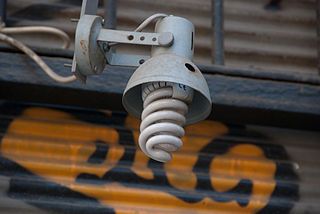From Guest Blogger Saanvi: New Technology and its Positive Impact upon the Environment

Taking Responsibility for Our Energy
One aspect of this revolution in the eco-friendly technology sector that has really gained momentum in recent years is automated home control products. Allowing home owners to control much of their energy output from wherever they happen to be, with the use of online technology, the products are intended to save not just much-needed money but much-needed energy too. Installing such a product allows thermostats to be controlled, lights to be turned off and appliances to be switched on only when renewable energy is available.
Although these control products are leading the way in the smart-home revolution, water consumption remains an acute concern of many environmental campaigners. As such, the chance to reduce usage and maximise the potential of renewable energy is one welcomed by home owners as well as those at the forefront of ecological reform. Many electrical appliance companies are already working hard to ensure that their products offer consumers the best starting point from which to conserve energy.
Of course, although dishwashers and washing machines have progressed hugely in terms of their energy output, few can claim to be completely eco-friendly. However, government funding coupled with a growing environmental conscience are conspiring to create durable household appliances with increasingly green credentials. But amidst all of these rising ecological concerns, consumers should be reminded that avoiding electrical appliances altogether is not always best for the environment, particularly when it comes to water wastage. For example, many experiments have been conducted and many outcomes have concluded that when it comes to helping the environment, dishwashers trump washing by hand almost every time.
Who Is in Control?
The rise in popularity of remote home controls has coincided with technology trendsetter Google purchasing thermostat-maker Nest Labs, in a deal worth around $3.2 billion. Created by two Apple workers, the Nest thermostat takes the concept of home control to another level. Removing the need for human decisions completely, the smart thermostats are intelligent enough to monitor and map regular behaviours and adjust technology use in the home accordingly. Nest customers have perhaps already proven the worth of the revolutionary product as the thermostat has so far saved enough electricity to power nearly 140,000 homes across the US.
Although the Nest is already rising in popularity with those in the most exclusive high-tech circles, it remains to be seen whether everyone will be so keen on the idea of a non-human entity controlling their home. But with many more accessible examples of the technology about to be rolled out on a larger scale, it is hoped that energy consumption might be about to drop in homes up and down the country.

You are talking about the kind of stuff I program. I can control anything in your home or business based on sensors and input from you from anywhere in the galaxy with access to our internet.